Life in Portland, OR, USA
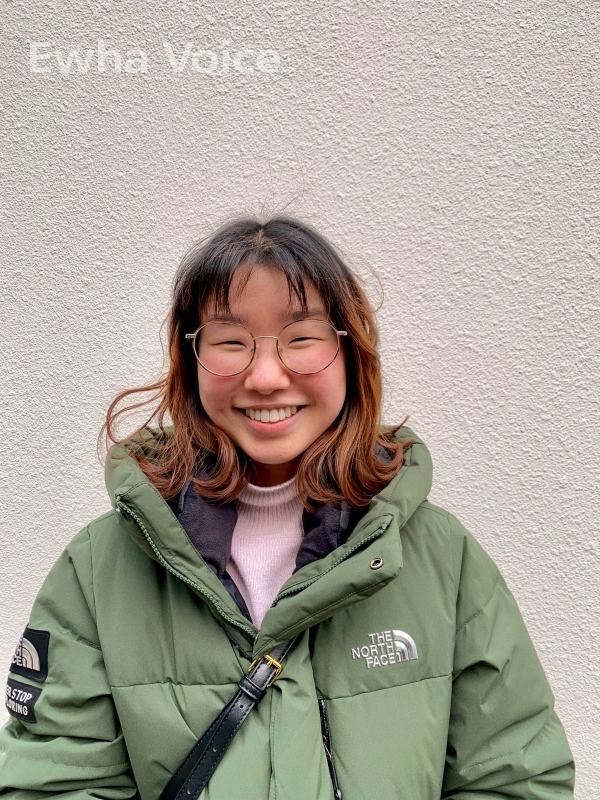
Hello! My name is Yoorim, and I’m a full- time undergraduate student double-majoring in Applied Linguistics and Teaching English as a Second Language at Portland State University in Portland, Oregon (OR), USA. This academic year, I’m also the Cultural Sustainability Coordinator at Portland State University’s Student Sustainability Center. I was a visiting student at Ewha Womans University between August 2021-July 2022– I primarily took classes in Korean language and culture.
Born in Gunsan, South Korea, I moved abroad before I was even a year old– I’m a transnational Korean adoptee, raised in an American household and spent the majority of my life splitting my time between the U.S, China, and the Philippines. When I eventually moved back to Korea in 2021, I’d lived in Portland, Oregon, since 2018 and had already completed my first 2 years of my undergraduate studies at a small liberal arts college where I’d been 1 of 3 Koreans on a campus of nearly 2,100 students. One of the fundamental reasons that I transferred to Portland State University in 2020 was to intentionally rekindle my relationship with my Korean heritage and culture and formally begin taking Korean language classes that didn’t exist at my previous college.
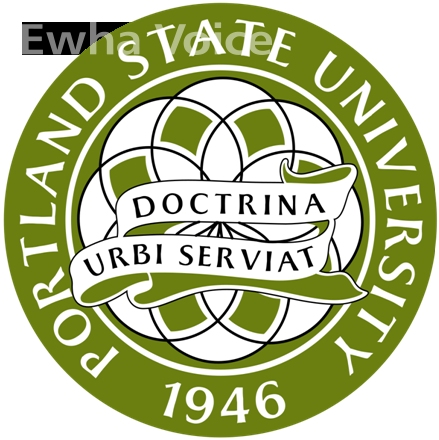
Portland State University, otherwise known as PSU, opened in 1947 and is located in Portland, OR, with a total enrollment of nearly 21,200 people– 18,000 students are currently pursuing undergraduate degrees. Notably, 37% of PSU’s student body identify as BIPOC (Black, Indigenous, People of Color), making PSU, Oregon’s most diverse public university as well as boasting an array of other impressive accolades such as being Oregon’s most affordable research university and ranking as one of the nation’s most innovative, LGBTQ (Lesbian, Gay, Bisexual, Transgender, Queer)-friendly, and environmentally-conscious campuses.
Portland State University is also a notably “urban campus,” located in downtown Portland and is flanked by a wide variety of food carts, office buildings, and apartments. Like Seoul, it’s common to see commuters living outside of Portland, travel into the city daily for work or to scope out the trendiest new cafe or restaurant, many of which are family-run small businesses. More recently, Portland enthusiasts rave about the city’s fusion cuisine which combines aspects of both American and more globally-inspired dining etiquette.
While living in Seoul, I especially missed the PSU Farmers Market, which is held year-round on Saturday in Portland’s South Park Blocks, some of which connect directly to PSU’s campus. Accessible by Portland’s buses, light rail, and streetcar, the PSU Farmers Market has up to 12,000 visitors on any given Saturday and famously features up to 130 vendors whose goods range from Korean kimchi and other ethnic foods to locally-grown lavender and beeswax products. It’s also common to witness live bands performing free of charge for gathered crowds, one of my favorites being the Last Regiment of Syncopated Drummers, a syncopated drum group.
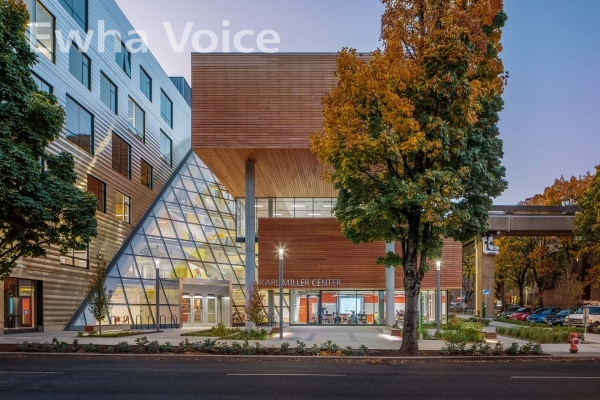
Life in Seoul, South Korea
I often say that my time in Korea was the most beautiful, the most magical, and the most meaningful year of my life. Especially as a Korean adoptee returning to my homeland, rather than conceptualizing my time in Seoul as being a “study abroad experience,” I understand it as simply having “lived.” In a Linkedin post from June, I even wrote, “For some, studying in Seoul was their ‘year abroad’-- for me, it's been the year that I was lovingly welcomed back to my country.”
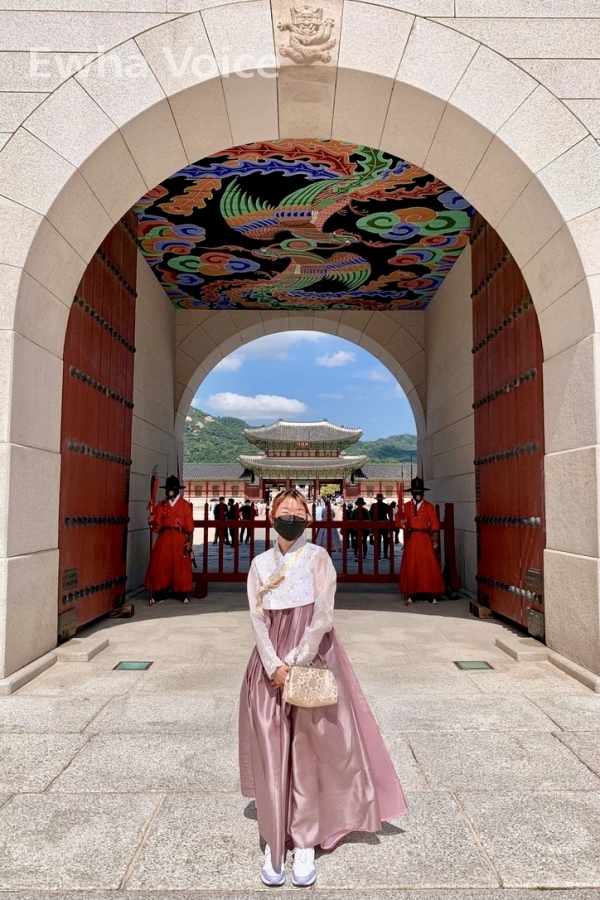
Coincidentally enough, one of my PSU Korean language professors is an Ewha alumnus herself and strongly encouraged me to apply to Ewha when I first began my Korean study abroad applications in Spring 2021. I remember watching Ewha’s introduction video on YouTube and immediately sensing that it was the university meant for me. Ewha’s ideals of women’s community and empowerment, world-renowned academics, and endless opportunities were inspiring and even as a visiting student, being a part of the larger Ewha community continues to be purposeful and impactful.
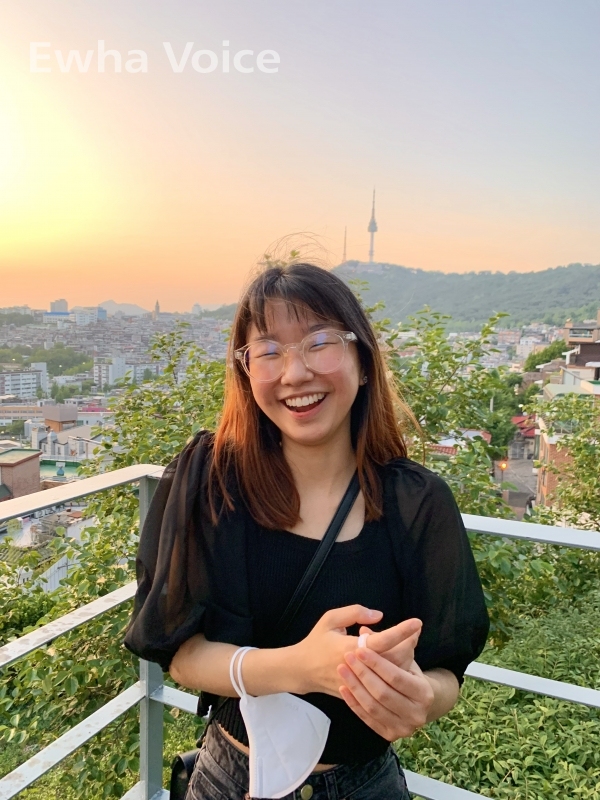
My time in Seoul, particularly at Ewha, gifted me with connections that I’ll hold dear for the rest of my life: Dr. Kyong-Mi D. Kwon encouraged me to take up space and be proud of my Korean heritage. I once met with her over Zoom, nearly crying, and she asked whether I needed to reschedule our conference– while this consideration wasn’t extremely complex, I’ll always be grateful for Dr. Kwon’s generosity. I hope to bring this same kindness into the work that I pursue going forward.
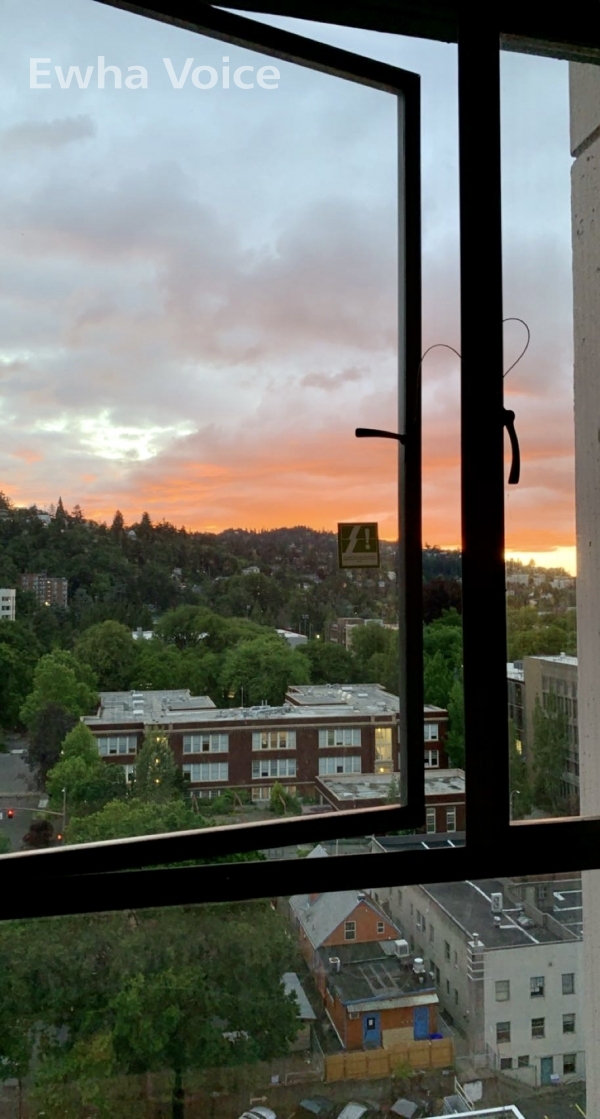
Korea’s arts, dining, and social communities are also incredibly dynamic and one of the main reasons that I hope to live permanently in Seoul in the near future– as an Ewha student, you frequently create bonds with other female leaders who work in a variety of diverse fields and who may also offer valuable insight into Korean language and culture. Accordingly, I always encourage students studying abroad to take advantage of Seoul’s wide array of museums, restaurants, and markets where we can practice our Korean language skills, experience Korean history and culture, and actively participate in Korean daily life. I personally recommend visiting Gwangjang Market(광장시장) which is famous for its exceptional traditional Korean food and art and is affordable for those on a tighter budget.
In Korea, I grew and thrived to an extent that I didn’t know was possible– I went from struggling to place an order at a restaurant to writing small essays in Korean and using the language confidently with my Korean peers. Today, I’m even able to speak on social issues in Korean and during thefirst week of September, met with my friend over coffee to discuss Asian American rights movements that we’re personally involved in as Korean women, all in Korean. This meeting was the first time since July that I had spoken Korean so actively and I was overwhelmed with pride and happiness knowing that no matter where in the world I may be, I’ll always be Korean.
I realize that my time in Korea, (and at Ewha), are memories that I’ll hold dear for 10, 100, and perhaps, 1,000 years ahead– I hope to reside in Korea soon, but in the meantime, I’m reminded of the Korean proverb which says, “고생 끝에 낙이 온다,” or as the closest English equivalent: “April showers bring May flowers.” Pushing forwards into the bright future, I’m endlessly grateful for the present that exists in Portland as well as the magnificent time that I spent in Seoul. See you again soon, Korea!

